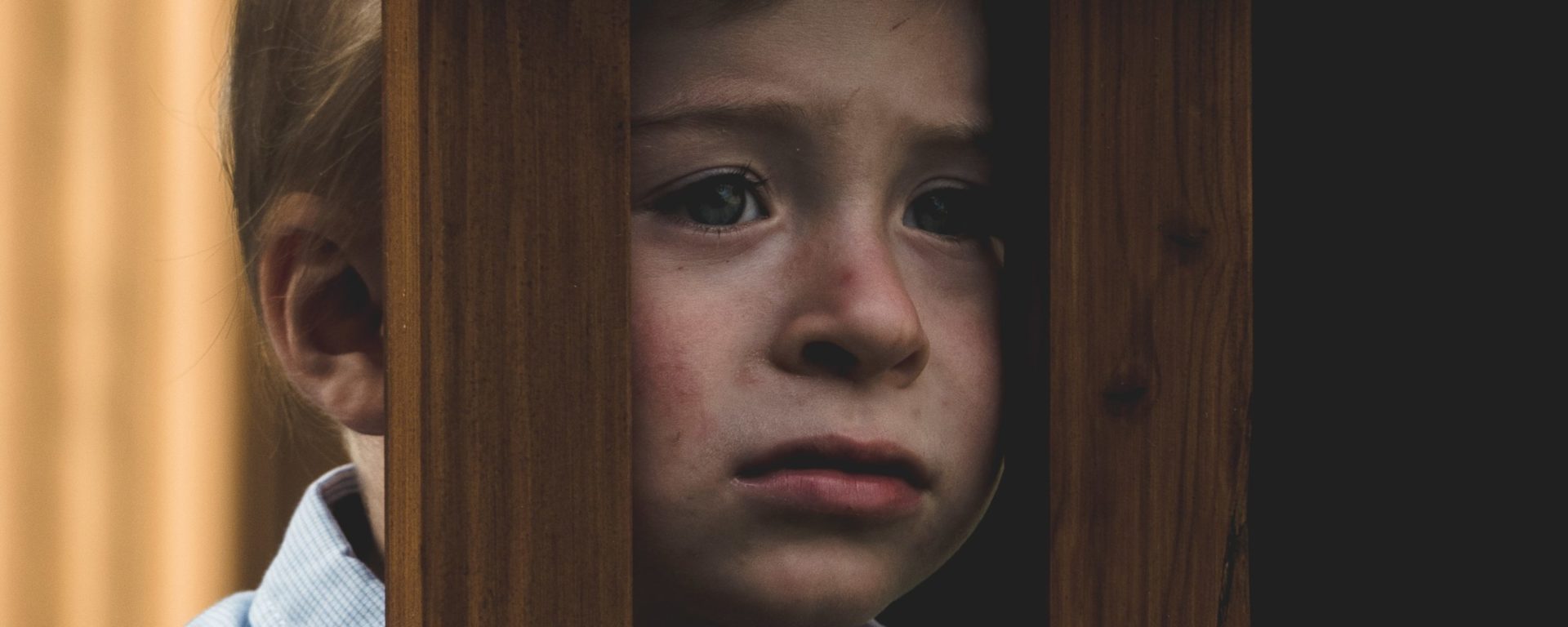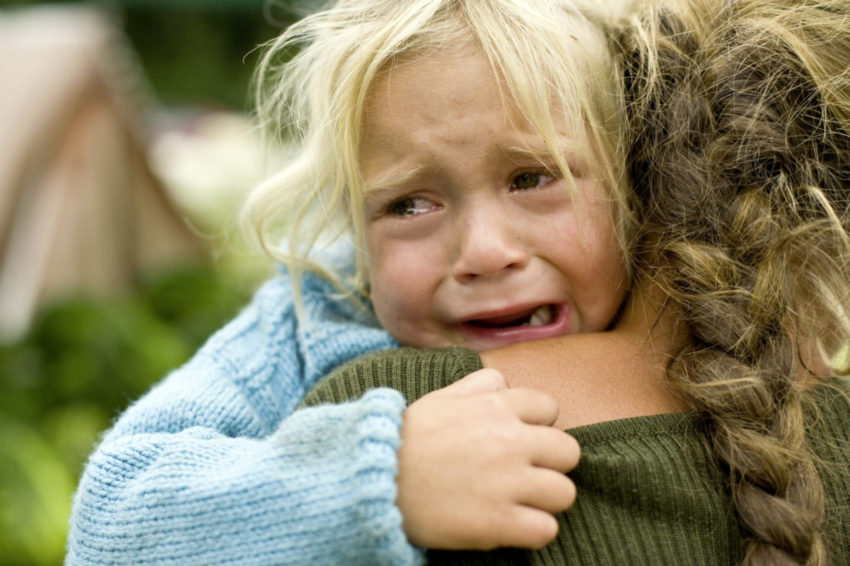Numerous experts have dealt with the topic of "parent-child alienation" in their respective fields. They share their experiences and their dedicated opinions with us here.
What experts say

Jorge Guerra is a German lawyer and psychologist and today works as an expert, mediator and contact person.
He is also a lecturer and carries out various research assignments at the Leuphana University of Lüneburg and at the Evangelical University of Nuremberg, on topics such as family law, conflict management and mediation as well as on topics such as social sustainability, ethics and values, gender and diversity, migration work, empathy in the Leadership, family law and conflict management.
Jorge Guerra has published two essays on the subject of parent-child alienation, which we would like to reproduce here with his kind permission.
Parent-child alienation vs. disinformation
Essay I:
Why can't (and shouldn't one) deny parent-child alienation?
FamPra.ch 2021 p. 997
The enforcement of visitation rights: a taboo?
Christine Arndt, lic. iur., attorney-at-law
(Arndt Christine/Crandles Gillian/Goldsmith Frances/Gordon Claire/Kucinski Melissa/Baroness Marie, The Enforcement of Visitation Rights: A Taboo?, FamPra.ch 2021 p. 997 ff., 1012)
Although she criticizes the fact that both parents are needed for the healthy development of a child, she states without a doubt that if there is a judicial or official childcare regulation, it must be implemented at all costs. If such a regulation does not yet exist, then the courts and also the authorities must at least issue a provisional regulation in the near future.
Authorities would have to “provide child-friendly procedures” and involve specialists.
That doesn't sound spectacular, but she advocates absolute enforcement - even with plainclothes police. If the preventing parent experiences that, it will not happen again in the future.
This is also the milder procedure compared to years of contact.
good text
MoHeAm/July 2023
FamPra.ch 2021 p. 675
Refusal of contact, termination of contact and initiation of contact in highly conflict-ridden separations and divorces as well as parental relationships
Patrick Fassbind
Joachim Schreiner joachim.Schreiner@upk.ch
Jonas Schweighauser schweighauser@svwam.ch j.schweighauser@unibas.ch
These three experts approach the topic from different angles. The psychological side, which they also illuminate, is exciting. Among other things, they draw attention to an important point: that contact interruptions are subject to a time dimension. If the relationship was good, it also carries over shorter periods of interruption. However, this "time window" is subject to a certain framework, if it lasts longer than a year, this interruption in contact will eventually be a "disconnection".
They also approach the topic from the perspective of pedagogy. In doing so, they adopt the «learning theory». Here, too, the three lawyers point out the time dimension of the problem.
In summary: the decisions and the associated enforcement must be made promptly.
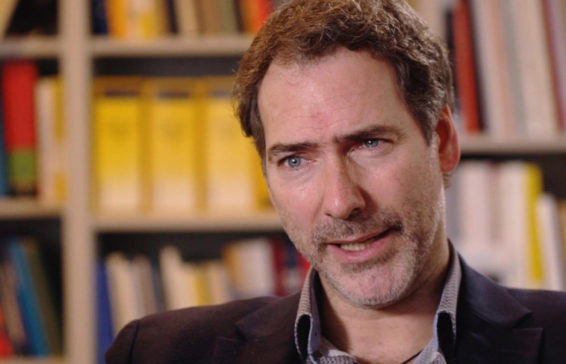
Parent-child alienation as a risk factor
for emotional child abuse
. Stefan Ruecker
“Anyone who can read a book in a dark room brings important qualities with them to recognize the often hidden phenomenon of parent-child alienation.
Children in the context of separation seem to withdraw from an intact parent-child relationship for good reasons, and the parent caring for them is at a loss and protests that they have nothing to do with this strange development. In fact, alienating parents often guarantee that the child is allowed to go to the other parent, but does not want to, and ultimately cannot be forced. In conversations of this kind one wonders what those same parents would do if the child refused to go to school or to eat. Overall, alienating parents deny any responsibility, while alienated children refuse contact with the other parent. There's nothing you can do about that, right!? Admittedly, the situation is usually complex and, moreover, there are legitimate reasons for children to distance themselves from their parents.
With suitable methods, however, signs of actual alienation can be made visible. The premise in this area is 'look carefully'. Alienating parents tend to have specific characteristics, as do alienated children. For example, affected children usually report the conflict on two levels: the manifest and the latent! Or to put it another way: on the manifest level, children verbalize their dislike of a parent; Emotionally and behaviorally, however, children often tell a very different story. Like the two boys, who have been estranged for years, who keep reassuring themselves by eye contact with their mother that they are not saying anything wrong and who claim that they don't care about their father at all.
However, when they hear the news that the father has made a new partnership, they react in panic and tears and stammer that the father will soon have new children and won't need them anymore. Indifference looks different! But this is only one indication among many and, moreover, not representative, because fathers also alienate. Beyond this distressing scene, children are generally harmed by parent-child alienation. Clinical studies, for example in the fields of neurobiology, child psychopathology and attachment research, show a significantly increased development risk for alienated children, with depression, eating disorders, self-injurious behavior and alcohol and drug disorders dominating. The consequences often extend over the entire life of those affected. Parent-child alienation is a psychological crime against children, just like physical abuse! The tragedy of induced alienation, however, is that the consequences are not immediately visible compared to physical abuse. It is all the more important that in the sense of good practice for the protection of children, adequate, empirically proven analysis methods are used in cases where alienation is suspected. In this context, all disciplines involved are required!”
The Tumor of Parent-Child Alienation
Dr. Hans Peter Dürr
Cancers do not appear overnight or by themselves, but are sparked by a mutation and often take years for the disease to break out.
It's the same with parent-child alienation – it doesn't happen overnight when a child says they no longer want to see or have anything to do with their father or mother. Malignant trajectories of parent-child alienation cause children to say of their father or mother, "I'd rather he were dead," or "I want her out of my life."
The same applies to alienation as to cancer: if you want to prevent it, you can't wait for therapy, but you have to take care of prevention and early detection. The KiMiss Institute and the University of Tübingen have developed an instrument for the early detection of induced parent-child alienation, the so-called KiMiss instrument.
Induced parent-child alienation occurs when the alienation of one parent can be traced back to the influence of the other parent on the child. This tool provides early detection based on the often subtle and perfidious elements of a quietly waged relationship war in which the child is weaponized: when the 3-year-old expects the other parent to call, but the phone is unplugged;
when the 6-year-old child's weekends with the other parent are prevented by a variety of lies; when the 9-year-old child is told that the other parent "didn't want it" before the birth, etc. The KiMiss instrument is based on a list of 150 behaviors that need to be examined in the event of parental conflicts. Why does an instrument for the early detection of induced parent-child alienation have to derive a prediction from the behavior of the parents, why can't we examine this directly on the child?
There is a simple reason for this: once the process of alienation has already started in the child, it is often too late. Even an instrument for the early detection of cancer must not wait until the tumor has started to make its way. The KiMiss Institute has cared for many parents who are affected by incipient or progressive parent-child alienation.
One of the most common sentences of those affected is: "They all say there is nothing more they can do". It's too late. The? This meant family courts, youth welfare offices, counseling centers or procedural advisors and experts. Many of those affected do not see their children for years.
Their Christmas packages for the children are sent back to them unopened after the New Year and the parents who have thrown away think several times every day when they look at the phone: "Maybe the tide will turn today and my child will call me". Years before, the signs of parent-child alienation were already apparent - but they were not taken seriously. Induced parent-child alienation destroys the common life between a child and his father or mother.
It is a severe form of child abuse and emotional abuse, often causing lifelong damage or disability to the child. The still widespread underestimation of forms of emotional and psychological abuse actually represents a systematic denial of this violence against children. Today there are many people who could be spared the answer through cancer screening: “We can no longer do anything”.
Even in family courts, youth welfare offices and those involved in the proceedings, developments must open up so that they no longer have to say this sentence to parents and children. Above all, we must finally understand parent-child alienation for what it is: a psychological form of abuse and a form of domestic violence against children. Early detection of parent-child alienation is just as possible as in other areas of medical diagnostics - such methods must be used if the emotional abuse of children and the psychological forms of domestic violence are to come to an end and we want a society in which we work with responsibility and benevolence for a future worth living for our children.


Sociologist (MA)
systemic therapist
parent coach with a focus on
parent-child alienation,
separation, post
"Parent-child... what?
Never heard of…” Anna Pelz
This or something similar is usually the reaction of most people when I address the topic of parent-child alienation (EKE). "Oh well. Another fashionable diagnosis from America.” This or something similar is the reaction of many experts, which is still frightening. Parent-child alienation is a social phenomenon that affects an estimated 30,000 to 60,000 children in Germany every year (depending on the source). EKE has now been well researched and has been recognized as mental child abuse by the European Court of Human Rights since 2019.
But what exactly is this parent-child alienation?
It is a side effect of many conflictual separations, affecting all social classes without exception.
An ugly relationship finale, ugly end, love turns to hate, hate breeds anger, anger blinds. If a child is there, it will be used at the latest then as the last remaining weapon in the fight against the hated ex: the contacts and interactions between the child and the ex are sabotaged, the child is deliberately incited so that it soon rejects this parent "all of its own accord". Until then, everything is usually hardly noticeable, since excluding parents present a perfect facade to the outside world. And the bruises on a child's soul, which are caused by EKE and have already been described many times by experienced experts, are invisible at first glance anyway. Alienation can be accomplished very subtly.
Little snide remarks, wry looks, or abruptly leaving the room when the child mentions the other parent. A two-finger grip and a grimace of disgust when a toy is touched "by him/her." Asking if the child would like to call the dad/mom - with raised eyebrows and an icy voice. Just little things that hardly anyone ascribes a meaning to. What motivates a parent to behave like this?
As a rule, these are abysses that no one likes to look into. From hate and revenge to ignorance, fear of being abandoned to mental illnesses such as borderline. It is not uncommon for events from the parent's own childhood to play a role: authoritarian upbringing, one's own parents' addiction problems or their mental illnesses, violence (including sexualized or psychological violence), neglect, withdrawal from love. Abysses that can tempt someone who grew up in them and survived them to want to draw others into them as well. Kind of a cry for help. Look, that's how I felt. The tragedy is that when these parents are offered help, it is usually turned down. You don't need help. Everything is going wonderfully if it weren't for this ex. He/she alone is the disruptive factor. Does it sound familiar? That can be good. You probably know some single mothers or fathers in your area. There is a high probability that you know at least one child who is a victim of parent-child alienation. And you know at least one perpetrator. Don't look away if you see signs of EKE. Work for a sustainable and positive relationship between the child and both parents. Children need both parents.
Emotional Titanic
Dr. Hamid Peseschkian
A separation or divorce with children is (almost) always an emotional downfall.
It's a situation no one would wish for themselves or their children. But it happens quite often - and around 200,000 underage children in Germany are affected by it every year. All life changes. Now, a key difference between humans and animals is that humans can communicate with each other, reflect on themselves and others, and look out for solutions. At the Wiesbaden Psychotherapy Center, one of the largest outpatient psychotherapy facilities in Germany, patients of all ages are treated, including over 500 children and adolescents.
Indeed, many come from separation situations. For some it is about separation anxiety and adjustment to the new life situation; this can usually be treated well with therapy. However, the difficult and unfortunately also more frequent cases are when we therapists have to deal with the dispute between the separated parents and have to defend ourselves against being drawn into the pull of the downfall. Despite the major insults and injuries after a separation, many parents forget some basics that show how pointless, destructive and masochistic the separation behavior of the parents is: Since children are genetically considered, half are maternal and half are paternal Statements like: "I hope you won't become like your father" are totally out of place.
From a psychodynamic point of view, however, the worst thing is the influence of these parents' actions on the children's later self-esteem: It hurts that my parents separated. But that I never see or may see either of them again, this is a loss that is tantamount to death. As a separated or divorced partner I can say, "I hope we never see each other again", "you can stay stolen from me", "you died to me". But how is a child supposed to develop a healthy self-image, an image of men and women for later relationships, if 50% are not only missing, but bad? We experience this every day, that some parents show such destructive behavior for years, do not let any court tell them anything, completely neglect the needs of their child - and hope that they can get the child on their side by doing so.
Now children are getting bigger and older, and at 18 they are of legal age in Germany. How often do we experience it in therapies that adolescents or young adults are not only happy to have escaped from the "claws" of the possessive parent, but then also build up the relationship with the previously missing parent (usually the father) and thus the stories , which you have heard for years, completely put themselves into perspective ("my father isn't that terrible after all", "now I understand that my mother didn't let him get to me at all"). And the result: everyone lost!
The child is emotionally disturbed, has low self-esteem, coping with problems in life and relationships; the divisive parent has hardly any contact with the child (because it was never about the child, but about hurting yourself and playing power games); and the other parent no longer had any contact with the child anyway. If people do not want to use their self-reflection and conflict-solving potential, then the legislature and/or the courts must intervene in these cases due to the endangerment of the child's well-being. Withholding a parent from a child is a child endangerment! I've been a proponent of dual residency for many years, and in an era of working from home, many previous hurdles have been overcome. If a child finds out that the parents are still parents and are available despite the separation as partners, the ship may have gone down, but with the help of lifeboats I can reach new shores.
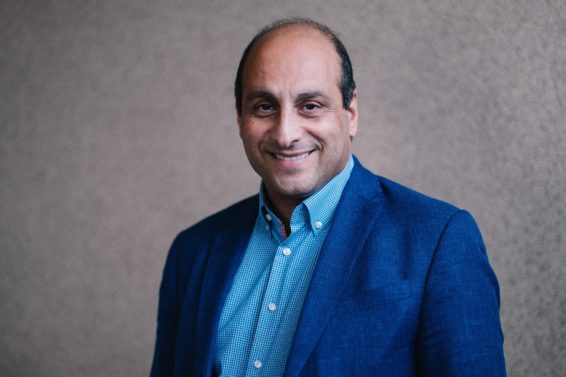
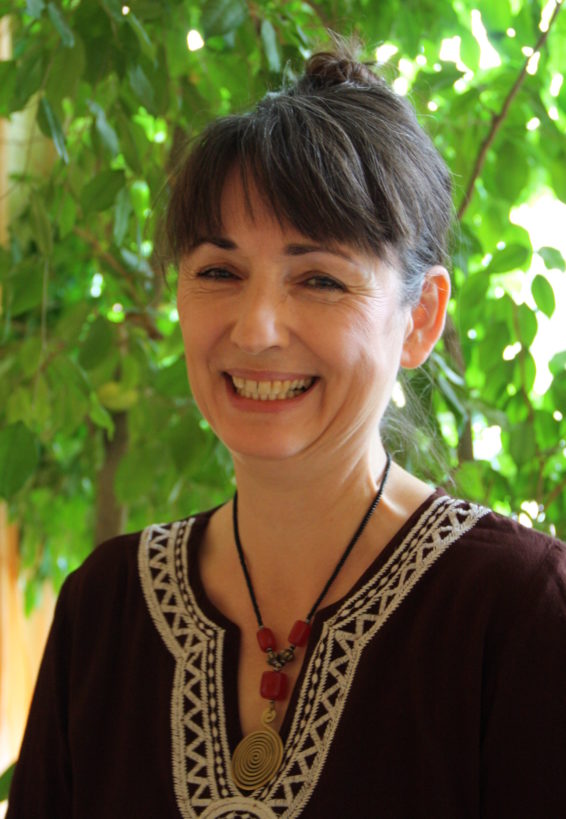
Parent-child alienation is by nature
a form of family violence - with consequences
Beate Blasius
Being separated from a loved one and not being able to love them anymore is one of the worst experiences for children.
The negative consequences can cast a long shadow over your entire life. An example: "I'm 42 years old now, I can't get along with myself anymore. marriage failed. problems at work. I'm sick all the time. I need help.” This is how a first contact begins with a client who was estranged from a beloved parent as a child.
He/she stands in front of a heap of broken glass and cannot explain why. It is clear that things cannot go on like this. First we want to understand how this could happen. To do this, we embark on a research trip, exploring the "family tree", the system in which we, our parents and their parents grew up. We explore how things are also intertwined transgenerationally and made us what and who we are today, how we think, feel and act. We ask ourselves: How did this imbalance in my life come about? What is the function of my symptoms (anxiety, depression, chronic exhaustion, addiction, irritable bowel syndrome,...)? Why can't I trust? Why do I have to constantly devalue myself or others? I have deep guilt, why? When talking to superiors I feel unreasonably powerless, I know that I am a high performer, why is that? If we, as failed adults, ask ourselves such questions and gradually recognize the dynamics in their naturally grown and constantly mutual effect, then we can gradually process and integrate the separation from the beloved parent that was forced at the time and then give life a new, healing direction.
Parent-child alienation is a cruel, life-defining experience of violence! You must be met early!
Parental Alienation is a Serious
Form of
Child Psychological Abuse
Dr. medical Wilfried v. Boch-Galhau i. R
Induced parent-child alienation that is not treated can lead to long-term traumatic psycho-physical consequences in affected children. Insufficient attention is paid to this fact in family court proceedings. The article published in "Neuropsychiatrie" (2018) 32 (3): 133 - 148 peer-reviewed summarizes the definition, the symptoms and the different degrees of severity of parental alienation and describes some important alienation techniques and possible psychosomatic and psychiatric consequences of the induced parent-child alienation. Finally, reference is made to prevention and intervention programs that are now being used and evaluated in some countries. Two case studies from practice and a detailed, international bibliography conclude the work: https://doi.org/10.1007/s40211-018-0267-0 .
Induced parent-child alienation (parental alienation) is a specific form of psychological child abuse that is described in the DSM-5, the current Diagnostic and Statistical Manual of the American Psychiatric Association (APA) under the diagnosis number V 995.51 and in the International classification of diseases ICD-11 under the diagnosis code QE82.2 "child psychological abuse".
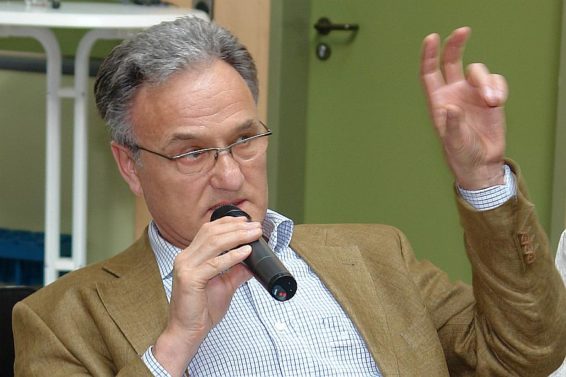
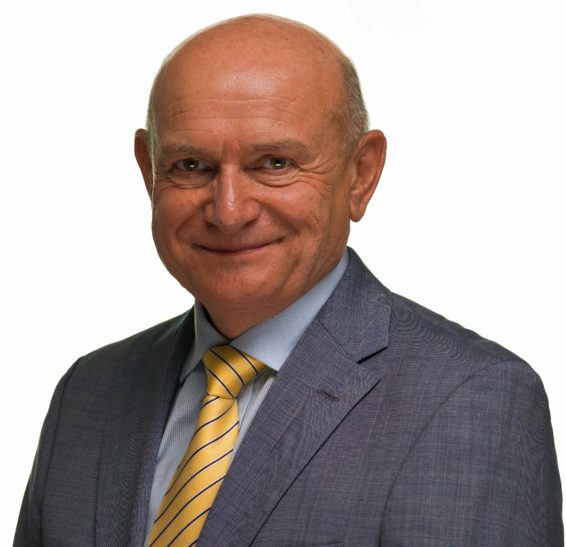
medical director of the center for psychotherapy at the Medic Center Nuremberg
Externally, the excluding parent needs a ban on contact with the excluded ex-partner, not only to take revenge for the insults suffered in the relationship and to demonstrate ultimate power, but also and especially to get the condemning fake message from the »bad father« or of the »horrible mother« not to be subjected to any informational comparison with reality.
Dr. med. Dieter Katterle
A pathological parent-child alienation increases the damage for the child of separation significantly in the psychosocial area.
The excluded parent is not only lost externally, but is erased internally as a forbidden object. Internally, this means splitting off half of the child's identity, including the forbidden positive feelings, memories, and images of years together.
The consequences: an unclear self-reference, a ban on mourning and a significant self-esteem regulation disorder. Externally, the excluding parent needs a ban on contact with the excluded ex-partner, not only to take revenge for the insults suffered in the relationship and to demonstrate final power, but also and especially to get the condemning fake message from the "bad father" or of the "horrible mother" not to be subjected to any informational comparison with reality.
Because this could lead to the official doctrine of the demonized “other” being called into question and prevent the new enemy image from permanently and irrefutably establishing itself in the common child. We know this phenomenon from history and from current news: Totalitarian states use the means of one-sided fanatical incitement and prohibit the use of alternative sources of information so that the totalitarian narrative gradually becomes the actual reality in the consciousness of the addressees.
In global politics this is called re-education through brainwashing and demagogy. Large camps are built for this, and with that wars are prepared or waged with a large following, as we are currently experiencing. The victims in families are the children.
They fall first on the parental battlefield, then grandparents, friends, and relatives follow until the world is cleansed and the totalitarian claim of the alienating parent, who literally abuses parenting power as emotional and social violence, is enforced. In the divorce-related professions there are some willing accomplices to alienation who sometimes do not know what they are doing or, what is far more dangerous, know what they are doing but feel obliged to give priority to certain often very emotionally charged social ideologies and pass over the children who are under their protection. What was once a primarily external ban on contact ultimately becomes an internal one.
The emotional bridges to the excluded parent fall. Over time, the internalized ban on contact creates a kind of numb spot in the soul in relation to the lost and subliminally persists, often for life. When they get older and have their own smartphone, the pathologically alienated children often no longer approach the marginalized, discarded parent and become curious about the search for truth. This is often offered as a well-intentioned attempt at consolation, but unfortunately it does not come off as often as hoped. In the past few years, I have repeatedly taken patients into therapy, mostly only after the age of 30, when it came to the question of partnership and starting one's own family.
What they had in common was a parasitic dyad with the caring parent, mostly mothers, but also to a lesser extent fathers, the hate-driven exclusion of the non-resident parent who allegedly or actually had failed badly in his or her family role, and the systematic frustration of further social contacts with those who had been rejected fathers or mothers.
The symptoms of the young patients were similar in the form of significant, recurring depressive episodes, chronic contact and relationship disorders, with the result that relationships repeatedly failed. But not even the therapeutic treatment of the anti-developmental symbiosis with the primary attachment figure and the gaining of increasing adult autonomy led to the expected desire to visit the parents who were still alive for clarifying contact talks and to hear their story. "Wasted time, I have more emotional contact with my pizza maker than with my biological father, even if I know today that mother lied to me back and forth," I heard one of them say and wrote down her statement because it was so significant and is representative.
It shatters the hopes of many marginalized parents that they will be able to meet their lost child again in the future. Often there is no longer a bridge, because after a certain point in time there is no shared biography. Which memories, which holidays and birthdays should one talk about? There was none. The biography-destroying effect of the induced parent-child alienation is not only reflected in the children's emotional burden of symptoms.
It runs through the biography of those affected into old age. A master craftsman in his 60s with a depressive balance sheet crisis revised his life and searched for the source of his depression.
The father was lost early in the parents' divorce process. He and his brother had never questioned the mother's reports about the "terrible person". When they were arranging the estate after their mother's death, the brothers came across many documents, letters, photos and papers that told a different truth. Depression turned to sadness and lots of old unshed tears.
The master craftsman wrote his long-dead father a love letter and placed it in the grave soil. »They die the living death of the heart« says Prof. Richard Gardner, the American child psychiatrist who conceptualized the Parental Alienation Syndrome, when looking at the fate of the excluded parents.
So let's not forget the suffering of parents, grandparents, relatives and friends who have been deprived of their children, who have a significantly higher suicide rate than the average population, a high incidence of depression, addiction, psychosomatic illnesses and chronic pain syndromes.
(see Ester Katona, Freiburg 2008) Will science become the new compass?
Bioinformatics has now scientifically underpinned the indispensability of contact between a child and both parents.
A biological parent is not interchangeable with a "social" parent, at least not without significant losses in child development opportunities. Unlike stepmothers, stepfathers or foster parents, only the two biological, natural parents hold the key to the epigenetic memory store that is imprinted on our DNA and contains the treasure trove of acquired experience in dealing with our genetic makeup. It also forms the basis for the transgenerational transmission of experiences, unfortunately also traumatic ones, and irreversibly at that.
This key, with which it can practice the optimal and most efficient way of dealing with its epigenetic equipment, is not available to the child if the biological parents are not present.
This creates a new type of paradigm for determining child-friendly instructions that can no longer be ignored.
The bioinformatician Prof. Peter Beyerlein (TH Wildau, Brandenburg) has researched this in great detail and described it scientifically.
